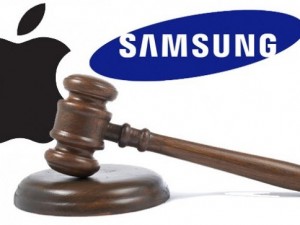 Patents were invented to help spur new inventions and protect the intellectual property rights of inventors. Many, however, believe that patents do more harm than good in current affairs. Patents have become a breeding ground for copyright trolls and have led to endless litigation between competing technology companies.
Patents were invented to help spur new inventions and protect the intellectual property rights of inventors. Many, however, believe that patents do more harm than good in current affairs. Patents have become a breeding ground for copyright trolls and have led to endless litigation between competing technology companies.
The recent patent wars started in 2012 between Samsung and Apple illustrate how much money and time has been wasted to little effect. Samsung and Apple are now under the regulatory microscope, too, after Samsung engaged in several lawsuits and injunction requests against Apple for supposedly violating its standard-essential patents. By the end of last year, the European Union’s Competition Commissioner Joaquin Almunia said that Samsung’s lawsuits were in violation of anti-competition regulations and represents “an abuse of dominant market position.”
To Samsung’s dismay, the European Union is now investigating whether Samsung itself is violating regulations on standard-essential patents. As the European Union announced on Thursday, Samsung has offered a deal to the EU: to abstain from seeking injunctions on devices that allegedly violate its own patents for a period of up to five years, as long as the agreement between it and the licensing company adhere within a specific framework. The proposed framework would include a 12-month negotiation period and the option to negotiate further in court or through arbitration if the issues are not resolved within the 12-month window.
Samsung’s proposal according to the European Union:
To address these concerns, Samsung has proposed to commit for a period of five years not to seek any injunctions on the basis of any of its SEPs, present and future, that relate to technologies implemented in smartphones and tablets (“Mobile SEPs”) against any company that agrees to a particular licensing framework.
The licensing framework consists of: (i) a negotiation period of up to 12 months and (ii) if no agreement is reached, a third party determination of FRAND terms by either a court or an arbitrator, as agreed by the parties. If the parties cannot agree on either submitting to court or arbitration, the parties will have to submit to arbitration.”
Joaquín Almunia, who is in charge of the competition policy, said:
I am looking forward to receiving the feedback of other market players on Samsung’s proposals. Enforcing patents through injunctions can be perfectly legitimate. However, when patents are standard-essential, abuses must be prevented so that standard-setting works properly and consumers do not have to suffer negative consequences from the so-called patent wars. If we reach a good solution in this case, it will bring clarity to the industry.”
The new moratorium on patents is specifically for mobile technology only. Samsung has argued that it hasn’t violated any regulations, either, but has been an extremely active player in patent-infringement litigation to little effect against Apple. Now with the EU breathing down Samsung’s neck, this move looks to provide damage control. Perhaps Samsung failed to learn a lesson that many of us were taught as a child, which is that if you play with fire, you’re bound to get burned.
This new proposition would make it that much harder to win in patent court, and would hopefully discourage more needless litigation. Do you think patents help or stifle innovation these days?
via CNET


